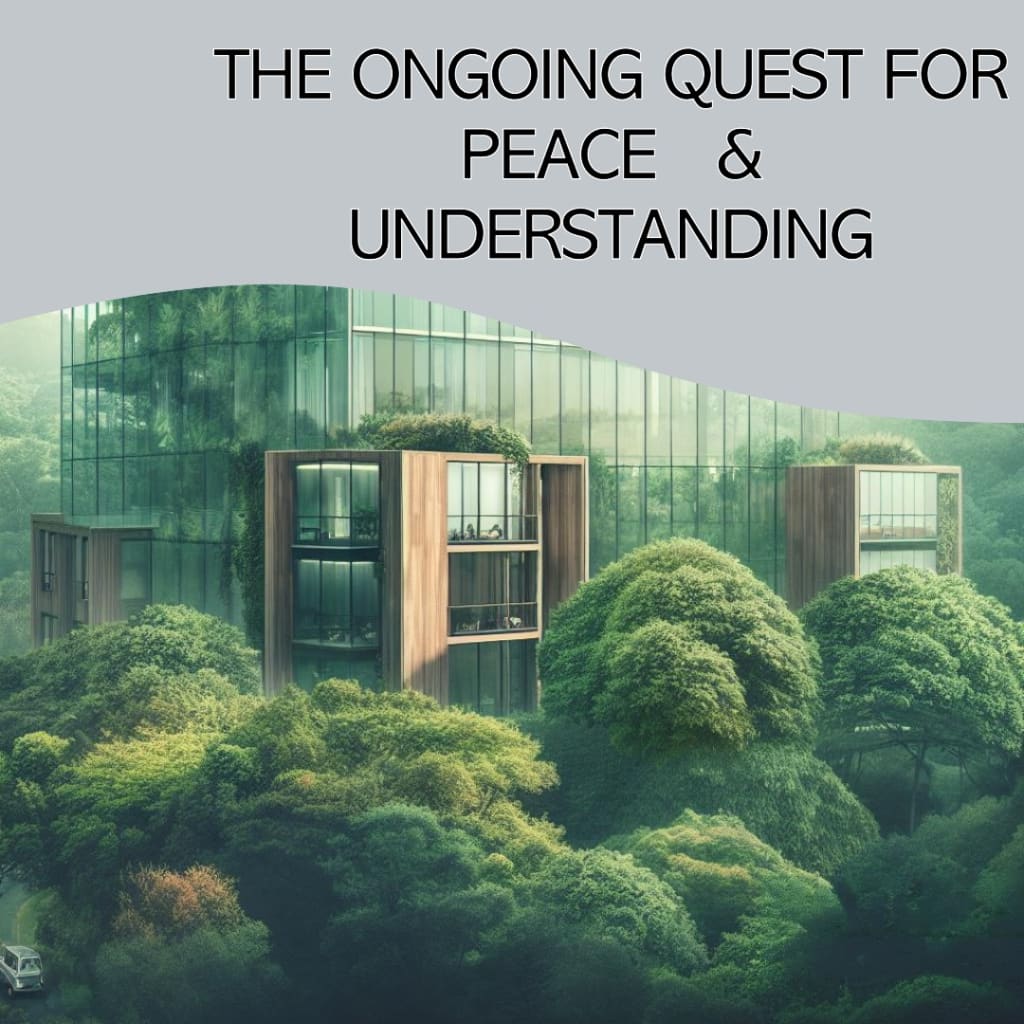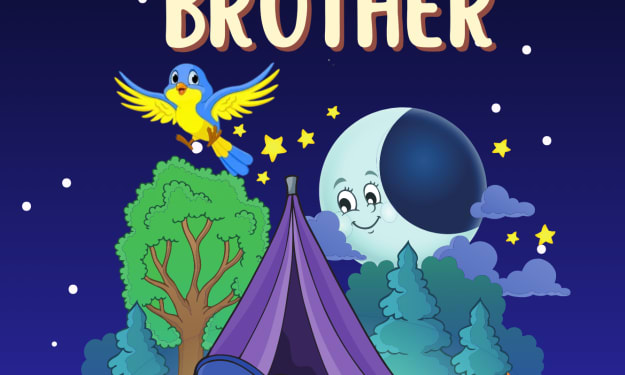The Ongoing Quest for Peace and Understanding
Exploring the Devastating Consequences, Solutions, and the Imperative of Peace

War is Not Good for Humanity: The Ongoing Quest for Peace and Understanding
War has been a constant presence in human history, a grim and destructive force that has left indelible marks on societies, cultures, and individuals. It is often a culmination of complex political, economic, and social factors that lead nations to engage in armed conflicts. While war has sometimes been seen as a necessary evil, it remains a painful reminder of humanity's propensity for violence. This essay explores the multifaceted aspects of war, its devastating consequences, and the enduring importance of pursuing peace and understanding as alternatives to the destructive path of war.
I. The Ravages of War
A. Loss of Lives
One of the most immediate and tragic consequences of war is the loss of human lives. Soldiers and civilians alike bear the burden of death and suffering. From ancient battles to modern conflicts, the human cost of war is staggering. Detailed accounts of the major wars throughout history underscore the extent of this tragedy.
World War I: A Generation Lost
World War II: The Ultimate Price
The Vietnam War: An Unforgettable Toll
B. Physical and Psychological Trauma
Beyond the loss of life, war inflicts physical and psychological trauma that often lasts long after the last shots are fired. Soldiers returning from war zones carry both visible and invisible wounds that affect their lives and well-being.
Physical Injuries: The Visible Scars
Post-Traumatic Stress Disorder (PTSD): The Invisible Scars
Displacement and Refugees
War forces millions of people to leave their homes in search of safety and shelter. The issue of displaced persons and refugees is a pressing humanitarian crisis, further emphasizing the far-reaching consequences of conflict.
II. The Economic Impact of War
A. Destruction of Infrastructure
War leaves a trail of destruction in its wake. Infrastructures, such as roads, bridges, schools, and hospitals, are often targets, causing significant setbacks in a nation's development.
Rebuilding After War
The High Cost of Infrastructure Damage
B. Economic Drain
The financial toll of war is colossal, both in terms of immediate military expenses and long-term economic consequences. The diversion of resources to war efforts can hinder economic growth.
Military Spending
Economic Recovery and Debt
III. The Societal and Cultural Consequences
A. Disruption of Societies
War disrupts the daily lives of civilians, causing social upheaval and altering the fabric of societies. This disruption can lead to long-lasting effects on a nation's social structure and stability.
Family Disintegration
Social Cohesion Breakdown
B. Cultural Heritage at Risk
Wars threaten the preservation of cultural heritage. The destruction of historical sites, artwork, and artifacts erases a vital part of human history and identity.
The Looting of Artifacts
Cultural Sites as Casualties
IV. The Environmental Toll
War's consequences extend to the environment. The use of destructive weaponry and military activities have long-lasting effects on the natural world.
. Deforestation and Habitat Destruction
Pollution and Toxic Residue
. The Elusive Search for Solutions
Diplomacy and Negotiation
Efforts to prevent and resolve conflicts through diplomacy and negotiation are preferable alternatives to war. International organizations and diplomatic channels play critical roles in addressing global disputes.
The United Nations and Conflict Resolution
Peacekeeping Missions
Conflict Resolution Strategies
The practice of peaceful conflict resolution, through negotiation, mediation, and dialogue, offers an alternative to war.
Mediation and Third-Party Intervention
Reconciliation and Healing
Arms Control and Disarmament
The reduction and control of arms proliferation is a fundamental step toward reducing the likelihood of war.
The Role of Arms Control Agreements
Nuclear Disarmament Efforts
VI. The Humanitarian Response
Humanitarian Aid and Relief
During and after wars, humanitarian organizations play a crucial role in providing assistance to those affected by the conflict. Their work encompasses medical aid, food, shelter, and emotional support.
The Work of Organizations like the Red Cross
Challenges and Obstacles in Humanitarian Aid
Rebuilding and Rehabilitation
Post-conflict reconstruction and rehabilitation are essential for rebuilding nations and communities.
Infrastructure Rehabilitation
Mental Health and Trauma Rehabilitation
. The Quest for a Lasting Peace
. The Humanitarian Imperative
War's relentless cycle underscores the imperative of prioritizing peace and conflict prevention.
Learning from History's Mistakes
The Responsibility to Protect (R2P)
Education for Peace
Promoting a culture of peace through education and awareness is a fundamental step towards achieving a lasting peace.
Teaching Conflict Resolution and Tolerance
The Role of Media in Shaping Perceptions
Case Studies
. The Syrian Conflict
The Syrian conflict serves as a contemporary example of the devastating consequences of war and the challenges of finding peaceful resolutions.
Background and Overview
The Ongoing Humanitarian Crisis
The Hiroshima and Nagasaki Bombings
The atomic bombings of Hiroshima and Nagasaki during World War II exemplify the immense destructiveness of war and the urgent need for disarmament.
The Devastation of the Atomic Bombs
The Legacy of Hiroshima and Nagasaki
. Conclusion
The destructive nature of war has left an indelible mark on human history. The loss of lives, economic burdens, societal disruptions, and environmental consequences all emphasize the need to seek alternatives to war. Diplomacy, negotiation, conflict resolution, humanitarian efforts, and the promotion of a culture of peace are essential steps toward a more peaceful world. It is incumbent upon nations, organizations, and individuals to work tirelessly to ensure that the horrors of war are not perpetuated but instead are consigned to the annals of history.
A POEM I WROTE
In the shadow of conflict's looming dread,
Where lives are lost, and tears are shed,
I write this verse to make it understood,
That war is not the way, it's never good.
In trenches deep, in fields of strife,
Lies the cost of this unending life, Soldiers' dreams are buried in the mud,
Their youth and hope, drowned in the flood.
Families torn, and cities scarred, In the name of power,
it's not too hard,
To see the truth that's crystal clear,
War brings pain, suffering, and fear.
Yet, in the darkest hours of night,
A glimmer of hope can still ignite,
A world where peace and love may thrive,
Where unity and understanding will drive.
Let's lay down the swords, and cease the fight,
Embrace each other in the soft moonlight,
For in our hearts, a common good,
To live in peace, as humans should.
War is not the answer, that's for sure,
It's unity, compassion we must explore,
To heal the wounds, to mend the pain,
And build a world where love will reign.
So let us strive to find a better way,
To end the suffering, to brighten the day,
For war is not the path we should choose,
In the name of humanity, let's refuse.
About the Creator
Enjoyed the story? Support the Creator.
Subscribe for free to receive all their stories in your feed. You could also pledge your support or give them a one-off tip, letting them know you appreciate their work.





Comments
There are no comments for this story
Be the first to respond and start the conversation.